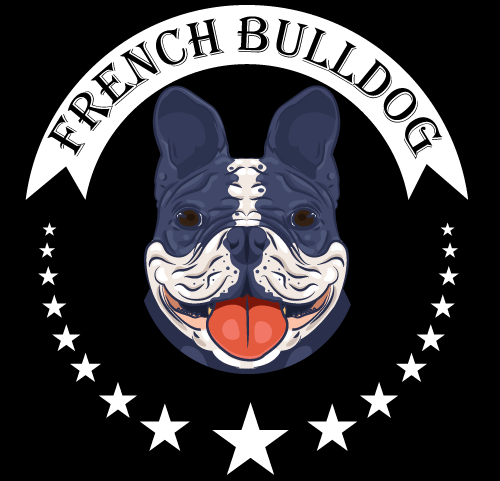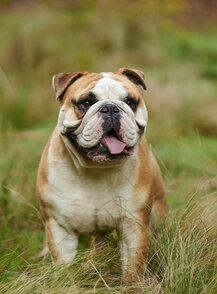Are you wondering, “Why does my Frenchie eat poop? ” Well, don’t fret; you’re not alone in this curious conundrum! As a seasoned expert in the fascinating world of French Bulldog behavior, I’m here to unravel the mystery behind this somewhat comical yet perplexing habit. Our adorable four-legged friends can leave us scratching our heads at times, and understanding their quirks, like poop-eating, is all part of the delightful journey of pet ownership. So, grab a cup of coffee, and let’s embark on this humorous but enlightening exploration together.
If you’re looking for ways to improve your Frenchie’s health and well-being, consider exploring the best probiotic for French Bulldogs to address their unique dietary needs. French Bulldogs often have sensitive tummies, and the right probiotic can work wonders in supporting their digestion and overall vitality. By diving into the world of Frenchie-friendly probiotics, you’ll be better equipped to help your furry friend lead a happier and healthier life.
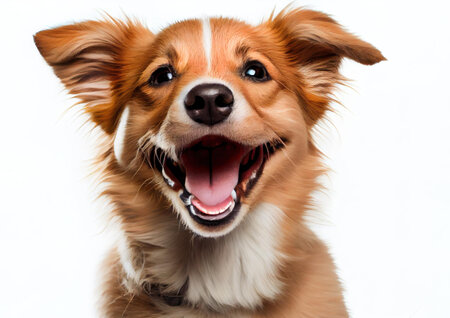
Understanding Coprophagia in French Bulldogs
Coprophagia in French Bulldogs is a topic that many pet owners find concerning and quite unpleasant. Resolving this issue with sympathy and understanding is significant.
Coprophagia is the scientific term for the behavior of dogs eating their own or other animal’s feces. While it can be observed in dogs of various breeds, it seems to be more prevalent in some, including the lovable French Bulldogs. This behavior can be quite perplexing and, understandably, gross for us humans.
There are a few reasons why French Bulldogs and other dogs might engage in coprophagia:
Nutritional Deficiencies: One possibility is that your French Bulldog is not getting all the essential nutrients they need from their regular diet. This can lead them to seek out other sources of nutrition, even if it means eating feces.
Instinctual Behavior: Coprophagia might also have its roots in a dog’s evolutionary history. In the wild, puppies often consume the feces of adult dogs to keep their den clean and avoid attracting predators. This instinct may persist in our domesticated pets.
Medical Issues: Sometimes, underlying health problems, such as malabsorption issues or parasites, can lead a dog to eat feces. It’s essential to rule out any medical causes by consulting with your veterinarian.
Possible Reasons for Your Frenchie Eating Poop
There are several possible reasons why your French Bulldog (Frenchie) may engage in coprophagia, or the behavior of eating feces. Understanding these reasons can help you address this issue effectively:
Nutritional Deficiencies:One possibility is that your French Bulldog is not getting all the essential nutrients they need from their regular diet. This can lead them to seek out other sources of nutrition, even if it means eating feces.
Instinctual Behavior: Coprophagia may have evolutionary roots. In the wild, puppies would often consume the feces of adult dogs to help keep their den clean and prevent attracting predators. This instinct might still be present in domesticated dogs like French Bulldogs.
Attention-Seeking Behavior: Some dogs may eat feces to get attention from their owners. They might have noticed that this behavior gets a strong reaction, even if it’s negative, and they continue doing it for attention.
Stress and Anxiety: Just like humans, dogs can experience stress and anxiety. Coprophagia might be a coping mechanism for your Frenchie when they’re feeling anxious or stressed.
Medical Issues: Underlying health problems, such as malabsorption issues, gastrointestinal disorders, or parasites, can lead to coprophagia. If your French Bulldog suddenly starts this behavior, it’s essential to consult a veterinarian to rule out any medical causes.
Environmental Factors: A dirty living environment or exposure to other animals’ feces can sometimes encourage coprophagia. Keeping your Frenchie’s living area clean and preventing access to feces can help address this.
Puppy Curiosity: Puppies often explore the world through their mouths, and this can include trying out various objects, including feces. This behavior can sometimes persist into adulthood if not properly addressed.
Social Learning: Dogs can pick up behaviors from other dogs, including coprophagia. If your Frenchie sees another dog doing it, they might try it themselves.
Health-Related Factors in Coprophagia
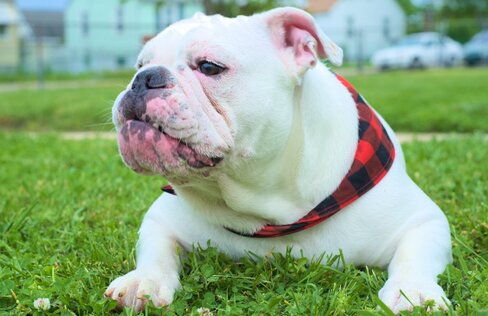
Health-related factors are crucial in understanding why dogs, including French Bulldogs, engage in coprophagia, which is the behavior of eating feces. It’s essential to address these factors with care and consideration for our furry friends’ well-being.
Nutritional Deficiencies: One of the most conspicuous well-being-related factors in coprophagia is the likely absence of fundamental supplements in a canine’s eating routine. At the point when a canine’s body doesn’t get every one of the fundamental nutrients and minerals, it could endeavor to repay by consuming excrement. This features the significance of giving a reasonable and great eating routine for your pet.
Digestive Problems: Dogs with hidden stomach-related issues or malabsorption issues might go to coprophagia as a method for dealing with their distress. Gastrointestinal problems can influence their capacity to separate supplements from food, driving them to look for elective sources.
Parasitic Infections: Intestinal parasites, such as worms, can disrupt a dog’s digestion and lead to nutritional imbalances. In some cases, dogs may consume feces as a response to these internal invaders.
Exocrine Pancreatic Insufficiency (EPI): EPI is a condition where the pancreas fails to produce sufficient digestive enzymes. This can result in malabsorption and malnutrition, potentially driving a dog to eat feces to obtain missing nutrients.
Underlying Health Conditions: Certain diseases and medical conditions can affect a dog’s appetite and overall health. If your French Bulldog has an undiagnosed illness, it may lead to unusual behaviors, including coprophagia.
Medication Side Effects: Some medications may cause changes in a dog’s appetite and digestive processes. It’s fundamental to know about any expected symptoms of meds your Frenchie might take.
Dental Problems: Dental issues, for example, tooth rot or gum infection, can make eating troublesome or difficult. In response, dogs may opt for softer, more easily digestible alternatives like feces.
Stress and Anxiety: While not stringently a medical problem, stress and uneasiness can essentially affect a canine’s way of behaving. Coprophagia might be a survival technique for canines managing profound misery.
Behavioral and Environmental Causes
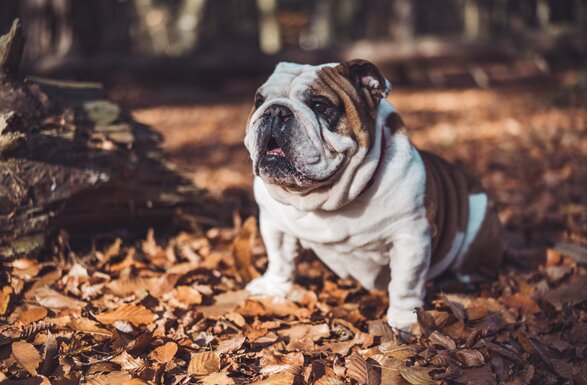
Understanding the behavioral and environmental causes behind coprophagia, or the act of dogs eating feces, can shed light on this sometimes perplexing behavior. Let’s delve into these factors to better comprehend why it occurs.
Behavioral Causes:
Motherly Instinct: One of the behavioral reasons for coprophagia can be traced back to a motherly instinct, especially in female dogs. In the wild, mother dogs would consume their puppies’ feces to keep the den clean and reduce the risk of attracting predators. This instinct might still exist in some dogs, leading them to eat feces, including their own.
Curiosity: Dogs, like many animals, explore the world through their mouths. This natural curiosity can sometimes extend to trying out various objects, including feces. For puppies and young dogs, in particular, this can be a part of their exploration.
Attention-Seeking: Coprophagia can be a way for dogs to get attention from their owners, even if it’s negative attention. They might have noticed that this behavior tends to provoke a reaction, and they continue doing it to gain your focus.
Environmental Causes:
Dirty Living Environment: A less-than-clean living area can be a contributing factor. Dogs might resort to eating feces if they’re surrounded by unclean conditions, making it more accessible.
Access to Feces: Simple admittance to excrement, whether it’s their own or that of different creatures, can energize coprophagia. Guaranteeing that your canine doesn’t approach excrement is a significant piece of forestalling this way of behaving.
Other Dogs’ Influence: Dogs are known for learning behaviors from other dogs. If your dog observes another dog engaging in coprophagia, they might be more inclined to try it themselves.
Why a French Bulldog puppy keeps eating poop?
It can be quite concerning when a French Bulldog puppy consistently eats poop, but understanding why this behavior occurs can help you address the issue with empathy and care.
Exploratory Phase: Puppies are naturally curious creatures, and they tend to explore the world around them using their mouths. This curiosity can lead them to try out different things, including feces. Eating poop might simply be a part of their exploratory phase.
Motherly Influence: In the wild, mother dogs would often consume their puppies’ feces to keep the den clean and to avoid attracting predators. This behavior may have an influence on puppies, and they might continue to eat poop as a result.
Attention-Seeking: Puppies crave attention and interaction with their human family. Eating poop, even if it’s a negative action, can sometimes get a strong reaction from their owners. This can cause them to do it all the more frequently to acquire your consideration.
Nutritional Deficiency: Thinking about a wholesome deficiency is fundamental. On the off chance that your pup isn’t getting every one of the fundamental supplements from their eating routine, they could depend on eating defecation as a method for enhancing their eating routine.
Stress and Anxiety: Very much like people, little dogs can encounter pressure and tension. Coprophagia might be a coping mechanism for them when they’re feeling anxious or overwhelmed.
Should you be concerned about poop eating?
It’s totally common to be concerned in the event that your canine, whether it’s a doggy or a grown-up, is eating crap. Coprophagia, as it’s called, can naturally bring up issues about your pet’s well-being and conduct. The following are a couple of interesting points while evaluating whether you ought to be worried about this way of behaving:
Frequency: Incidental crap eating is entirely expected, and it may not really be a reason to worry. Nonetheless, assuming that it turns into a relentless propensity, that is the point at which you ought to begin focusing harder.
Health: One of the initial steps is to preclude any fundamental medical problems with the assistance of your veterinarian. Gastrointestinal issues, dietary lacks, or parasites can all add to coprophagia, and tending to these wellbeing concerns is essential.
Age: In the case of puppies, coprophagia can be more common due to their curiosity and natural exploration. Puppies tend to grow out of this behavior as they mature, but it’s still essential to monitor it.
Diet: The quality of your dog’s diet plays a significant role. A well-balanced diet can reduce the temptation to eat feces, as it can be an attempt to compensate for nutritional deficiencies.
Environmental Factors: A dirty living environment or easy access to feces, whether from other animals or in the yard, can contribute to this behavior. Maintaining a clean space and preventing access to feces is a proactive step.
Training and Behavior: Training your dog to deter this behavior through positive reinforcement is a useful strategy. Consistency in training can be effective in discouraging coprophagia.
How to Discourage Poop Eating in Your French Bulldog
Discouraging poop eating in your French Bulldog, also known as coprophagia, can be a challenging but necessary task for a pet owner. It’s crucial to address this behavior with patience and a loving approach. how to discourage it:
Maintain a Clean Environment: One of the best ways of forestalling coprophagia is by keeping your canine’s living space clean. Pick up feces immediately after your French Bulldog is eliminated, both in your yard and during walks. Removing the temptation goes a long way.
Ensure a Balanced Diet: Provide your Frenchie with a well-balanced, high-quality dog food. Make sure their diet fulfills all their nutritional needs. Sometimes, poop-eating can be a response to nutritional deficiencies, so a proper diet can discourage the behavior.
Positive Reinforcement: Train your dog using positive reinforcement techniques. When you catch them in the act of trying to eat feces, intervene with a firm “no” or a similar command. As soon as they obey, reward them with a treat or praise to reinforce the right behavior.
Distraction and Redirection: When you see your French Bulldog showing interest in feces, distract them with a toy or treat. This shift in focus can help deter them from the poop.
Teach the “Leave It” Command: Teaching your Frenchie the “leave it” command can be a valuable tool. It empowers you to redirect their attention away from the feces and back to you.
Consult Your Veterinarian: If coprophagia persists despite your efforts, consult with your veterinarian. They can rule out any underlying health issues that might be contributing to the behavior and provide tailored advice.
Supervision: Keep a close eye on your French Bulldog during walks and playtime, especially in areas where they might encounter other animals’ feces. If you see them trying to eat poop, intervene immediately.
Use Commercial Products: There are commercial products available that you can add to your dog’s food to make their feces less appealing to them. These products can sometimes discourage coprophagia.
Consistency is Key: Be consistent in your training efforts. It may take some time to break this habit, but with patience and perseverance, you can discourage poop-eating in your French Bulldog.
When to Consult a Veterinarian for Coprophagia Issues
Managing a pet that has coprophagia issues, or the propensity for eating defecation, can be very disturbing for any pet person. While it could appear to be unusual or gross to us, this conduct is entirely expected in canines, and here and there even in felines. In any case, there are times when counseling a veterinarian for help is essential.
Persistent or New-Onset Behavior: In the event that your pet out of nowhere begins eating defecation, or on the other hand on the off chance that the conduct goes on for a lengthy period, it’s smart to counsel a vet. Abrupt changes in conduct can some of the time be a sign of hidden medical problems.
Dietary Changes: Assuming you’ve as of late changed your pet’s eating regimen and they foster coprophagia, it very well may be connected with healthful inadequacies or stomach-related issues. Your vet can evaluate the eating routine and suggest fitting changes or enhancements.
Medical Conditions: Certain ailments, for example, malabsorption issues, parasites, or pancreatic issues, can prompt coprophagia. A veterinarian can perform tests to recognize and treat these issues.
Behavioral Problems: Now and again, coprophagia is connected to conduct issues. Assuming that your pet is restless, exhausted, or pushed, they might participate in this way of behaving. A vet can recommend behavior modification techniques or medications if needed.
Infectious Diseases: Feces can carry parasites or diseases that your pet might ingest while eating them. Regular check-ups can help ensure your pet is protected from such risks.
Prevention: Your vet can provide guidance on preventing coprophagia, including training tips, changes in the environment, and the use of deterrents or additives that make feces less appealing.
Discussion of Possible Solutions: Your veterinarian can discuss potential solutions, including the use of commercial products designed to deter coprophagia or addressing any dental problems that might be contributing to the behavior.
Conclusion
While coprophagia in French Bulldogs can be a baffling behavior, it often has underlying reasons that can be addressed with the right approach. Understanding your Frenchie’s instincts, providing proper nutrition, and addressing behavioral and medical issues are essential steps to help curb this habit. With persistence and direction from your veterinarian, you can guarantee a better and more joyful life for your fuzzy companion.
Frequently Asked Questions
1. Why do Frenchies pee on everything?
French Bulldogs, like many other dogs, may pee on various objects or locations as a way to mark their territory. This behavior is often driven by their natural instincts to establish dominance and communicate with other dogs. It can also occur if they’re feeling anxious or insecure in a new environment. While it can be frustrating, understanding their motivations and consistent potty training can help address this issue and promote better behavior.
2. How do I know if my dog ate his poop?
On the off chance that you suspect your canine has eaten his crap, you might see terrible breath or a waiting unsavory scent all over. Additionally, you might see remnants of feces on their fur or around their mouth. Keep an eye on their behavior and consult your veterinarian if you have concerns about coprophagia, as it could indicate underlying issues.
